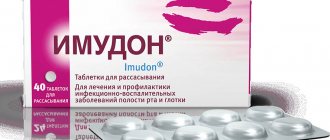Use of Ultracaine during pregnancy
Ultracaine is one of the most suitable painkillers that can be used during pregnancy. It is worth using a certain form of it, which contains a low dosage of the active substance. It is also important to pay attention to the contraindications of the form of medication in question.
Ultracaine during pregnancy is a remedy that relieves pain and inflammation. Used as an anesthetic tool in the treatment of toothache and other dental procedures.
Ultracaine: use during pregnancy
Toothache and painful dental procedures are unnecessary stress and worry for the expectant mother. For painless treatment of the oral cavity in pregnant women, such as treatment of a tooth area affected by caries, tooth extraction, dentists resort to the drug Ultracaine.
The safest and most effective form of anesthetic drug for pregnant women is Ultracaine DS (it contains 1:200,000 epinephrine). At this dose, the active substance of the drug does not pose a threat to either the mother or the fetus, since it does not penetrate the placenta. Another main advantage of a local anesthetic is the rapid rate at which the drug is eliminated from the body. It can also be used by nursing mothers without stopping breastfeeding during dental treatment.
Important! Ultracaine during early pregnancy is recommended to be used in case of emergency. A pregnant woman should postpone a visit to the dental clinic until the 2nd trimester, until the placenta is fully formed.
Can Ultracaine be used by pregnant women?
The main component of the product is an analogue of adrenaline. It usually does not cross the placenta and is therefore safe for the embryo. However, in increased doses it can cross the placenta. For this reason, when carrying a child, the medication should be used only in the most extreme cases.
At this time, it is recommended to use a drug such as Ultracaine D-S. It has a more gentle effect. When breastfeeding, do not feed the baby earlier than 4 hours after the injection.
The following situations can be identified in which a pregnant woman is advised to consult a doctor and allow the use of medication:
- Getting rid of dental caries;
- Periodontal disease;
- Removal of a tooth;
- Relieving inflammation of the gums;
- Installation of braces.
In these cases, during pregnancy it is better to wait to see a doctor:
- Dental prosthetics;
- Tartar removal;
- Dental implantation.
When carrying a child, it is used as an anesthetic and pain reliever during dental procedures. You should follow the instructions exactly and observe the dosage.
Ultracaine price
The cost may vary depending on the form of the drug and its type. The average price for Ultracain DS (quantity - 10 ampoules) is 550 rubles. You can buy 1 ampoule of ultracaine DS Forte for an average of 50 rubles. It is better to check with a specific pharmacy how much ultracaine costs.
| A country | City | Price |
| Russia | Moscow | 450 - 700 rubles |
| Russia | Saint Petersburg | 450 - 650 rubles |
| Russia | Ekaterinburg | 400 - 600 rubles |
| Ukraine | Kyiv | 100 - 160 hryvnia |
| Ukraine | Kharkiv | 95 - 155 hryvnia |
Ultracaine is a high-quality, effective and safe modern local anesthetic drug. But, like all medications in this group, you should not use it as part of self-medication, without consulting a dentist. Before using it for the first time, be sure to tell your doctor about your state of health, the possibility of allergic reactions and other medications you are using.
The average price for 1 ampoule or 1 cartridge is 100-110 rubles, but for a package of 10 ampoules you will have to pay about 1 thousand rubles. Ultracaine DS Forte may be about 20-50 rubles more expensive.
Most often, 1-2 ampoules are enough to remove or fill a tooth, so the product can be classified as a budget drug.
Despite the fact that medicine is developing and complex dental operations have become easier, the most important recommendations of doctors remain unchanged.
It is best not to rely on modern medications, but to observe good oral hygiene and undergo regular examinations with doctors to prevent the occurrence of diseases that require serious surgical interventions.
The cost of Ultracain D-S forte in pharmacies and online pharmaceutical stores is approximately 1,100 rubles. for 10 ampoules of 2 ml. Ultracaine D-S forte in 1.7 ml cartridges is sold for 4900-5000 rubles. for 100 pieces.
The cost of the anesthetic is 50 rubles per cartridge. For an ordinary patient, an anesthesia injection will cost 250-300 rubles.
The video talks about what needs to be done to avoid anaphylactic shock from the use of anesthetics.
The price of Ultracaine depends on the form of its release and the type of product. You can buy Ultracain D-S (10 ampoules) for an average of 550 rubles. The price of 1 ampoule of Ultracain D-S Forte is on average 50 rubles. How much the product costs in other forms of packaging can be found at the specific point of sale.
Composition and release form
The drug contains articaine hydrochloride and epinephrine. One ml of solution contains 10-20 mg of the substance.
The medication is available in three forms:
- Ultracaine DS forte (contains a concentration of epinephrine 1 in 100,000). Suitable for long-term pain relief. Used for operations in the oral cavity, depulpation. Among the contraindications, it is worth noting high blood pressure, heart disease, thyroid disease, bronchial asthma;
- Ultracaine DS (epinephrine 1 to 200,000). Ideal for use during pregnancy, breastfeeding, and heart disease. Contraindications include bronchial asthma and thyroid disease;
- Ultracaine (does not contain epinephrine and adrenaline). Suitable for people with allergic reactions, bronchial asthma, thyroid diseases. Along with its gentle effect, the drug also has its disadvantages. Its effect lasts only 20 minutes.
During pregnancy, Ultracain DS is used. It is both effective and gentle.
The drug is available in ampoules of 5 and 20 mm. One package contains 5 ampoules.
Instructions for use
Before using the product, it is recommended to conduct a sensitivity test. The injection is administered subcutaneously in an amount of 5-10 ml. After the procedure, it is necessary to check blood pressure, the state of the respiratory system, and the central nervous system.
During dental surgery, 1.5 ml of Ultracaine is injected into the palatal suture. The maximum dosage is 7 mg. During pregnancy, a gentle dose should be used. Sensitivity is restored after a few hours. After a couple of hours you are allowed to eat.
Other procedures require different dosages:
Tonsillectomy. For one tonsil you will need 5-10 ml of medicine, when working with fractures - 5-20 ml, when applying a suture in the perineal area - 5-15 ml; Conduction anesthesia. The dosage depends on the type of surgery. 1-30 ml of solution can be used.
It is not recommended to use the product in the first trimester, since at this time the formation of the placenta, which protects the fetus from unwanted elements, has not yet been completed.
Indications for use
Ultracaine begins its action immediately after administration. The duration of the analgesic effect varies depending on the individual characteristics of the body, as well as the dose, and ranges from 1 hour to 5 hours. On average, the anesthetic effect lasts 3 hours. The drug is filtered in the kidneys and excreted in the urine within ten hours after administration.
Instructions for use of Ultracain include the following indications for use:
- Ultracain DS is used for pain relief for: tooth extraction (one or more); preparation for crown installation; preparation for surgical interventions; for placing fillings on teeth.
- Ultracaine DS forte is indicated in the case of painful and complicated procedures: surgery on the dental pulp; surgery of the oral mucosa; jaw surgery; removal of broken teeth with advanced periodontitis; for acute inflammatory diseases of the maxillofacial area (osteomyelitis and others).
A medicine with a standard content of the active substance can be used in the following cases:
- Tooth extraction (without complex operations);
- Installation of a dental crown;
- When filling one or more teeth;
- For other simple dental procedures.
Before use, you should tell your doctor about all existing diseases and allergic reactions to make sure there are no potential contraindications.
The drug is injected into the area where the dentist will treat. Before the injection, the injection site is usually additionally lubricated with Lidocaine for painless administration of the drug.
For simple operations, such as installing a crown, most often one injection with 1 milliliter of the product is enough. When extracting a tooth, use 1.7 milliliters. For more complex operations, the dose can be doubled, but you should take into account which modification of the drug is used. If the effect of the drug is not achieved, or does not work fully, they resort to a blocker of the entire jaw.
Ultrakin does not have a specific dosage; it can be changed by a specialist depending on what kind of intervention he is performing. The maximum dosage for an adult is 7 mg per 1 kg of body, and for children - 5 mg.
Pregnant women, as well as children, reduce the dosage of the drug.
Depending on what kind of manipulation the dentist will perform, the dosage and form of the drug are selected. In each case, the doctor must take into account the general health of the patient, the characteristics of his body, age, weight and other details.
The minimum dosage of drug administration is 0.1 mg. It is sufficient for pain relief when applying simple sutures. If a tooth is removed, then 1.7 ml of solution is calculated per unit. Sometimes this is enough if several teeth are removed at the same time, but they are nearby. To prepare a tooth for crown installation, the dose of the drug is calculated in the range from 0.5 ml to 1.7 ml.
The dosage may be increased in cases where the patient has too little sensitivity and the usual amount does not completely relieve pain. It is also increased if the procedure involves a longer intervention.
It is important not to exaggerate the dose, calculating the maximum amount of medication at 7 mg of articaine per kilogram of the patient’s body weight. In any case, the amount of the drug should not exceed 500 mg per dental procedure, which is equal to 12.5 ml of the finished solution.
During pregnancy
Ultracaine is valued because it can be used even during pregnancy. But even this is done only in extreme cases. Without special need, they do not resort to it either in the early stages or at later stages.
Like any other drug, the anesthetic Ultracaine D-S has both its indications and contraindications.
Indications for the use of the drug as anesthesia in dentistry are:
- performing dental fillings;
- tooth extraction in the absence of serious complications;
- installation of a dental crown;
- removal of abscesses, treatment of sutures, wounds and other medical procedures.
However, there are also contraindications to the use of the product, including the following:
- increased level of sensitivity;
- individual intolerance to components;
- the presence of atrial fibrillation or paroxysmal ventricular tachycardia;
- presence of closed-angle glaucoma;
- bronchial asthma;
- hypotension;
- renal failure;
- anemia;
- diabetes;
- hyperthyroidism.
Although the instructions for use of Ultracaine for pregnant and lactating women do not contain any special instructions, it is still better not to use it unless absolutely necessary.
In any case, the decision whether to use this particular drug or not depends on the opinion of the attending dentist.
When using Ultracain D, it is important to remember that it, like any drug intended for use in the oral cavity, must be administered strictly into non-inflamed tissues.
In addition, the drug is not intended for intravenous administration.
The drug use regimens are as follows:
- for pain relief during incisions and suturing, it is recommended to use 0.1 mg of the drug per injection;
- as anesthesia when removing a tooth on the upper or lower jaw, anesthesia is administered at the rate of 1.7 ml of solution per tooth;
- in the case of treating cavities and when grinding teeth for crowns, a dose of the drug of 0.5-1.7 ml per tooth is injected into the area of the folds of the oral cavity.
A more precise dosage of anesthetic should be selected depending on the duration of the intended dental intervention. The maximum amount of the drug administered in one procedure should not exceed 7 mg per kilogram of body weight.
The use of Ultracaine D-S is permitted from the age of four as an anesthetic for depulpation, removal of milk and molar teeth. Before use, it is recommended that the child undergo an allergy test, and if a reaction is detected, an analogue should be found.
The dose of the drug when administered to a child is calculated using a special formula depending on the ratio of his age, height and weight. The amount of the drug calculated according to the formula should not be more than 5 mg per 1 kg of body weight.
Reviews from doctors and patients about the drug.
The instructions for Ultracaine stipulate that the drug is injected subcutaneously in 5-10 ml doses. But before using the product, the patient needs to undergo all the necessary diagnostic procedures. After the surgical intervention has been performed, the patient’s blood pressure is clearly monitored, as well as the state of his central nervous system and respiratory system.
Instructions for the use of Ultracaine in dentistry stipulate that when filling or removing teeth, 1.5 ml of the product is injected into the palatal suture. The highest dose for an adult should not be more than 7 mg; for children after the age of four, a dose of no more than 5 mg of the drug is indicated.
After anesthesia, oral sensitivity is gradually restored over a period of time. You can eat food approximately 2-3 hours after the anesthesia.
For infiltration anesthesia, Ultracaine is used in the following doses: for tonsillectomy, 5-10 ml of the drug is used for each tonsil; when reducing fractures, 5 to 20 ml of Ultracaine can be used; when applying a perineal suture - 5-15 ml.
Contraindications
There are contraindications to the use of the medication:
- Increased level of sensitivity;
- B-12 deficiency anemia;
- Hypoxia;
- Paroxysmal ventricular tachycardia;
- Angle-closure glaucoma;
- Atrial tachyarrhythmia;
- Intolerance to sulfo groups, especially in the presence of asthma;
- Methemoglobinemia.
The drug should be used with caution if you have the following diseases:
- Cholinesterase deficiency;
- Anemia;
- Kidney failure;
- Bronchial asthma;
- Arterial hypertension;
- Diabetes.
The medication should be used with caution when treating children.
An analogue in its structure is Articaine. Analogous effects:
Before use, you should see if the product can be used during pregnancy. During pregnancy, the best option is Ultracaine in a certain dosage.
When is pain relief needed?
Anesthetic drugs for dental treatment in pregnant women are necessary in the following cases:
- nerve removal;
- pulpitis;
- deep caries;
- removal of a tooth;
- periodontitis;
- preparation for prosthetics.
During pregnancy, it is not recommended to undergo cosmetic dentistry procedures. Teeth should be treated only if there are serious indications for dental intervention.
Your dentist will tell you about dental treatment during pregnancy.
Anesthesia in dentistry during pregnancy
Toothache, caries, periodontitis are enemies that we definitely do not expect to visit during pregnancy. Sometimes they “come” so suddenly that you are even lost, you don’t know what to do, what to do, how to send them away, preferably painlessly.
How to treat? What should I do? Can I take painkillers? These questions are asked by any pregnant woman.
Fortunately, now it is absolutely easy for the expectant mother to have easier dental treatment without harming the baby. Modern medicine is ready to offer safe local anesthetics for mother and baby.
One of these is ultracaine, a drug that is indicated specifically during pregnancy.
It has a rapid analgesic effect, is well tolerated and has no side effects, as it is quickly eliminated from the woman’s body.
How does this drug work?
Ultracaine is used as a local anesthesia, which has a strong analgesic effect.
But a significant bonus of this drug is its low toxicity; it practically does not penetrate the placenta.
The action of the drug directly affects nerve fibers. An injection of Ultracaine blocks the conduction of impulses to nerve receptors and within a few minutes the patient loses sensitivity at the injection site. The effect of anesthesia lasts from 45-60 minutes
This remedy has been studied and tested for a long time. Ultracain has been used in dental offices since 1978.
The solution is odorless and is available in special cartridges. When injecting the drug into the jaw, a special syringe is used, into which a carpule and a small-diameter needle are placed.
It includes:
✅articaine hydrochloride is the main active substance that blocks the nerve impulse
✅epinephrine (analogue of adrenaline), increases the body's resistance to stress, has vasoconstrictive properties.
Auxiliary components include: sodium chloride, sodium metabisulfate and purified water.
Modern dentistry provides 3 forms of Ultracaine release:
1⃣Ultracaine D (this form of release does not contain epinephrine). This type of pain relief is best suited for patients prone to allergic reactions, with serious disorders of the thyroid gland, and asthmatic patients. It is well tolerated by hypertensive patients and patients with problems of the cardiovascular system. The only drawback is the short duration of anesthesia, about 20 minutes.
2⃣Ultracaine DS (epinephrine content 1:200,000). It is prescribed for pain relief for pregnant and lactating women. However, it is prohibited to use for asthma and thyroid disease.
3⃣And finally the 3rd type. Ultracaine DS Forte (epinephrine content 1:100,000). Long-acting local anesthetic, used for complex surgical procedures, depulpation
However, unfortunately, it is in the early stages of pregnancy, when the baby is developing and the placenta is just forming, that Ultracain can be used only in cases of extreme necessity. The best solution would be to postpone the visit until the 2nd trimester.
Ultracaine in dentistry: indications and side effects
Quite often, a person does not have enough time to visit a dental clinic. To maintain the normal condition of your teeth, you need to undergo an oral examination twice a year. This helps to stop a developing dental problem in time. But it is not uncommon for a dentist to encounter a problem when a patient presents with pain. Upon examination, an advanced form of caries is discovered, and sometimes pulpitis. In this case, treatment without anesthesia is almost impossible, since the doctor is dealing with open nerve endings of an already painful tooth. Until recently, this issue was resolved with the help of arsenic. It was placed in a cleaned tooth cavity and covered with a temporary filling for several days. The effect of arsenic is detrimental to nerve endings, which makes it possible for the dentist to subsequently clean the tooth and perform a filling.
Today, anesthesia for dental treatment is different. Ultracaine has completely changed the concept of local anesthesia in dentistry. Now you can cure a sore tooth in one visit.
Instructions for using the product
Ultracaine is a drug belonging to the class of anesthetics for local use or in combination for regional anesthesia. It lowers the patient's pain threshold well. The pharmacological effect of the drug is due to pain relief and vasoconstrictor ability. Ultracaine is used in dentistry by intramuscular injection for the treatment of pulpitis, tooth extraction, and preparatory work in the oral cavity for operations.
The main composition of ultracaine is 40 mg of artacaine hydrochloride, 12 mg of adrenaline hydrochloride. These substances reach the nerve fibers, which causes pain relief for a maximum of 5 minutes. The vasoconstrictor effect is provided by the local effect of the drug. Time de
Source
Search form
Composition of the drug
It has become widely used in dentistry during medical procedures and to relieve pain symptoms.
Ultracaine is colorless and odorless and is available in various dosages.
Its main substance, in small doses, does not penetrate the placenta and thus does not have a negative effect on the fetus and its further development. During pregnancy, it is important to strictly follow the required dosage.
The local anesthetic contains:
- Epinephrine hydrochloride: Constricts blood vessels, eliminating the possibility of atrocaine entering the patient's blood. Thanks to this property, the likelihood of side effects is reduced.
- Atrocaine hydrochloride: an anesthetic component belonging to the tiaprofen group.
Release form
Ultracaine is available in three forms:
- Ultracaine DS forte: epinephrine content 1:100,000. Used for long-term dental procedures.
- Ultracaine DS: proportion of epinephrine 1:200,000. Good action and effectiveness with a small amount of the main component. Allowed to use during pregnancy and breastfeeding.
- Ultracaine D: does not contain epinephrine and adrenaline. The analgesic effect lasts about 20 minutes. The drug has found wide use among patients suffering from bronchial asthma and thyroid diseases.
The product is available in ampoules containing 5 or 20 mm of solution, from 5 to 100 pieces per package.
Ultracaine is used in the following cases:
- treatment of caries;
- tooth extraction;
- periodontal therapy;
- installation of braces;
- tooth filling;
- crown prosthetics;
- preventive and diagnostic measures related to teeth and gums;
- preparation for prosthetics;
- other dental procedures.
During pregnancy and lactation
- trauma; - exacerbation of chronic diseases of organs and systems; - dental problems; - exacerbation of surgical diseases.
The work of the anesthesiologist in this case must be impeccable, because he must calculate the correct dose, take into account placental permeability, the effect of anesthesia on the child and the degree of his sensitivity to the drug.
Of course, anesthesia cannot be considered completely safe, but science knows the fact that drugs can cause various abnormalities and have a harmful effect only if they are prescribed during certain periods of fetal development. The baby's major organs form between the second and eighth weeks of pregnancy, and this is when anesthesia is most dangerous.
- 8-38 days of gestation - brain; - 18-40 - heart; - 24-40 - organs of vision; - 24-36 - limbs; - 37-50 - genitals.
As for a pregnant woman's visit to the dentist, the expectant mother can seek help from a dentist for the treatment of caries, tooth extraction, periodontal surgery, treatment of gum disease or installation of braces. If implantation, prosthetics or surgery to remove tartar is required, then it is better to postpone these manipulations.
In domestic practice, the most common anesthetic for pregnant women is Ultracaine.
During pregnancy and breastfeeding, only the first two forms can be used; Ultracaine DS Forte is contraindicated during this period of life due to the high content of epinephrine.
Before starting therapy, the patient must inform the dentist about pregnancy or breastfeeding. The dosage in this case can be adjusted.
However, many experts consider the use of Ultracaine and its analogues during pregnancy to be an unsafe option.
The choice of anesthetic drug directly depends on the patient’s condition and the type of operation. In the absence of contraindications, pregnant women may be prescribed low concentration adrenaline-containing drugs.
As you know, taking any potent medications during pregnancy is extremely undesirable. However, modern medicine has a fairly large arsenal of remedies, the correct use of which is safe for both the expectant mother and the fetus.
The list of such drugs also includes Ultracaine, which is considered quite harmless due to the fact that it is a local anesthetic.
By anesthetizing the area of the oral cavity into which the dose of the drug was administered, Ultracain has virtually no side effects on the pregnant woman’s body as a whole.
Application
Before using the drug, you need to conduct a sensitivity test.
To do this, you need to inject 5-10 ml of the medication subcutaneously and observe the body's reaction.
Particular attention should be paid to blood pressure, breathing, heartbeat, the state of the central nervous system and changes in the skin.
When performing dental procedures, from 1.5 to 7 ml of the drug is injected into the palatal suture. During pregnancy, a gentle dosage is used. The effect of the product and sensitivity disappears after a few hours.
Contraindications
Ultracaine is strictly prohibited for use when:
- anemia caused by vitamin B12 deficiency;
- allergies to components included in the anesthetic;
- oxygen starvation;
- ventricular tachycardia;
- angle-closure glaucoma (eye disease);
- atrial fibrillation (rapid heartbeat);
- intolerance to sulfo groups, especially in the presence of asthma;
- methemoglobinemia (a genetic disease characterized by an increased level of methemoglobin in the blood).
Particular caution should be taken when using the drug when:
- cholinesterase deficiency;
- renal failure;
- bronchial asthma;
- arterial hypertension;
- diabetes mellitus
Side effects
Ultracaine rarely causes side effects. Most often they are expressed in the form of an allergic reaction with accompanying symptoms: suffocation, skin rashes, anaphylactic shock.
Other side effects include:
- the appearance of headache;
- dizziness, general weakness, drowsiness, loss of strength;
- disturbance of the rhythm of heart contractions;
- a sharp decrease in blood pressure;
- inflammation of the nasal mucosa;
- involuntary urination and bowel movements;
- vomiting, nausea, dizziness;
- irregular breathing rhythm, shortness of breath;
- inflammation of the mucous membrane of the eye;
- blurred vision;
- uncontrolled muscle contractions;
- skin rashes, itching, swelling of the lips.
Overdose
Failure to follow the instructions for use and administration of a large dose of anesthetic can lead to an overdose.
It can be expressed by excessive motor activity, loss of consciousness, severe dizziness, respiratory and cardiac arrest.
In the absence of necessary medical attention, an overdose can be life-threatening. At the first sign of it, you must immediately stop administering the drug.
If necessary, you need to perform artificial respiration, chest compressions, tracheal intubation, administer the necessary medications intravenously, and for some time be under the supervision of a doctor who must monitor the oxygen supply, pressure, pulse and condition.
Ultracaine should be stored away from sunlight and away from children, at a temperature not exceeding 25° C. The shelf life is always indicated on the packaging and is 5 years after release of the product. After the expiration date, the product cannot be used.
The anesthetic can be purchased at a pharmacy with a doctor's prescription; the average price of one ampoule is 250-300 rubles.
An analogue in composition is Articaine, and an analogue in effect is Luan and Fastin.
Ultracaine is considered one of the safest dental anesthetics for pregnant women and nursing mothers. Therefore, the use of analogues is not always appropriate.
Additional Information
There is certain information that you should definitely read when using Ultracaine for pregnant women:
- The drug must not be administered intravenously. For pregnant women, this can lead to miscarriage.
- Patients suffering from cholinesterase deficiency are characterized by pronounced side effects. Therefore, the medicine is used extremely rarely among them.
- The anesthetic has a negative effect on concentration. After using it, it is not recommended to drive a car or engage in hard work that requires enormous concentration. The patient should rest after local anesthesia.
- The painkiller is used with extreme caution among those suffering from metabolic problems, heart disease and kidney disease. The use of the drug should be carried out in the presence of a doctor capable of providing medical assistance in case of side effects and in case of overdose.
- Ultracaine can be used not only during pregnancy, but during breastfeeding, after consulting with your doctor. The medication passes into breast milk only in small quantities and is not capable of harming the baby or the nursing mother.
- Before use, you need to test for allergies to substances included in the drug, this is especially important among children and pregnant women.
- The main advantage of any local anesthesia is that the patient is fully conscious and does not feel pain.
- Ultracaine is an excellent alternative for patients with allergies to Lidocaine and Novocaine.
Recommendations for use and precautions
To minimize the risk of adverse reactions, you should adhere to established recommendations for the use of Ultracaine:
- The drug is not injected into inflamed tissue.
- It is also not administered intravenously. Injections into blood vessels should be avoided.
- If there are contraindications, a tendency to allergies or bronchial asthma, use a minimal amount of medication and introduce it gradually.
- It is advisable to use special disposable syringes of the Unidjekt K or Unidjekt K vario series.
- When opening the ampoule, the drug should be used for two days. It is not recommended to keep the product open longer without a special preservative.
- After administering Ultracaine, it is prohibited to drive or operate machinery.
Read also: Dental braces
Video: dentistry in the USA. How much does it cost to remove a tooth and put a filling?
Having learned that I was prone to allergies, the doctor advised me to use Ultracaine, citing the fact that it was a harmless drug. But after using it, I felt sick for a long time and felt very dizzy. Apparently, he is not so harmless. True, he coped with his task of anesthesia perfectly, nothing can be said here. Perhaps I just have an individual intolerance to any medications.
Every time I have to put a filling or remove a root, my dentist uses Ultracaine. I am happy with this medicine because I don’t feel anything during the procedure and now going to the dentist is not so scary for me.
Having tried a lot of other painkillers in my practice, I settled on Ultracaine, since patients tolerate it more easily, and the anesthesia is enough for me to carry out all the necessary manipulations.
How to prevent caries?
In order to avoid dental treatment and limit yourself to only a control examination at the dentist, it is necessary to prevent the occurrence of caries.
This can be done if you follow simple rules:
- reduce the consumption of sweets to a minimum;
- introduce a large amount of fresh fruits and vegetables into your diet;
- At least once every three days, eat foods rich in phosphorus and vitamin D, for example, fish, seafood;
- Chew food thoroughly while eating;
- brush your teeth at least twice a day, morning and evening;
- After eating, you need to rinse your mouth (you can also use chewing gum);
- consume the required amount of vitamins;
- do not snack between main meals;
- Visit your dentist regularly.
Choosing a pain reliever during pregnancy requires great care and responsibility. The possibility of side effects can never be 100% excluded. It is impossible to predict how a pregnant woman’s body will react to the medication. Therefore, you should take care of your dental health even before pregnancy.
Ultracaine in early pregnancy
Girls, tell me, who has encountered this, how dangerous is anesthesia (ultracaine) and x-rays in the early stages? I’m very worried, this morning I found out that I’m pregnant) But because... Since yesterday my gums have been unbearably painful. I had to go to the dentist. They said that it was necessary to remove the tooth. They injected me with ultracaine, but it had virtually no effect, so they injected me again. The result was the same, and in the end they removed it live. I am in tears from fear and wild pain, and the doctor mocks me for making things up. As a result, I lost consciousness. They helped me. Continue reading →
Tryam, hello! My name is Dasha. I am in my 9th week of pregnancy (according to the date of ovulation) and the 11th obstetric, today I went to the second ultrasound (as part of registration in the residential complex of the Moscow Region city of Klin), the results did not please me at all: they scared me terribly, I sit and I'm shedding tears. Maybe someone had such a situation? And the situation is as follows: The last menstruation was on May 20. On June 15, my jaw hurt terribly and the dentist forced me to take an x-ray. I didn’t know about pregnancy (I started doing tests only on... Read more →
Girls, please calm down. overnight the toothache became unbearable. I couldn’t eat anything at all. I went to a paid dentistry, my tooth was burned out, fibrous pulpitis. And on the other side there was a small flux (((they injected me with ultracaine and applied arsenic paste. 10 they will remove the nerve. She told me about pregnancy and due date. They assured me that everything was safe and it would have been much more serious if I didn’t come, but I was in pain. Then I read that it’s absolutely forbidden to treat teeth so early and arsenic still doesn’t give this peace. Is everything okay with my bead. What can you say? Maybe someone treated teeth in the 1st trimester. Read more →
Girls, tell me, who has encountered this, how dangerous is anesthesia (ultracaine) and x-rays in the early stages? I’m very worried, this morning I found out that I’m pregnant) But because... Since yesterday my gums have been unbearably painful. I had to go to the dentist. They said that it was necessary to remove the tooth. They injected me with ultracaine, but it had virtually no effect, so they injected me again. The result was the same, and in the end they removed it live. I am in tears from fear and wild pain, and the doctor mocks me for making things up. As a result, I lost consciousness. They helped me. Continue reading →
Well, we found time to write a story about our long-awaited meeting with the baby










